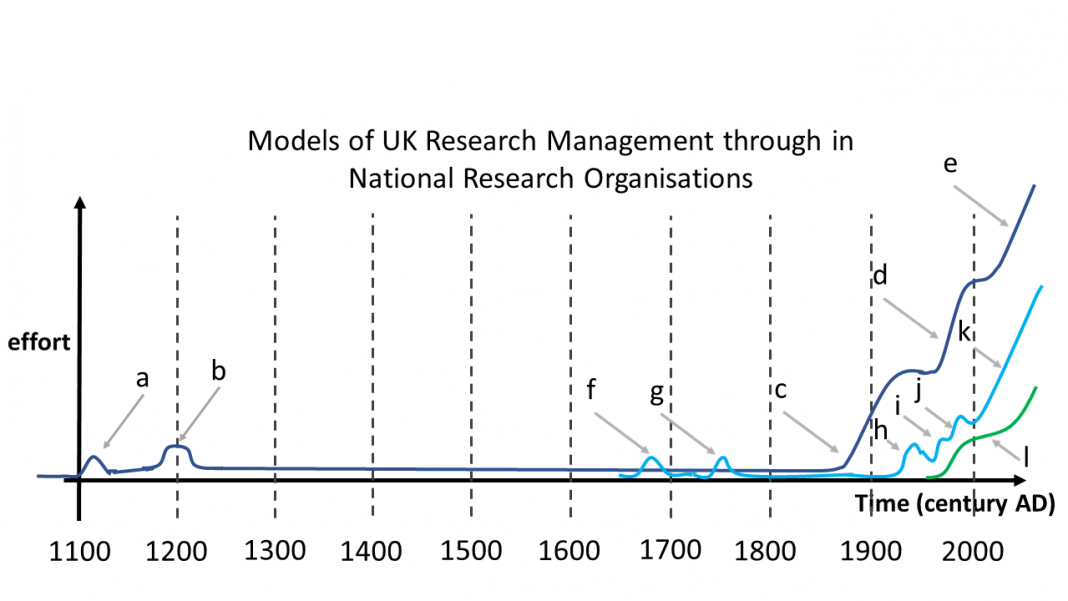Dr Joanna Leng, School of Computing, University of Leeds, Dr Phillip Brooker, School of Sociology, University of Liverpool and Emeritus Prof Wes Sharrock, School of Sociology, University of Manchester, all from the UK, ponder if Research Software Engineers have research methods, plus why today, we have increasingly more types of academic research institutions and organisations
It should be evident that Research Software Engineers (RSE) have research methods: it is in the name, and we have two previous case study articles that highlight how research and Software Engineering (SE) methods and skills are combined. We have to ask this because the practices of RSEs are assumed rather than investigated. The answer depends on our ideology and the established ideology of what counts as research.
Why identifying RSE research methods is important?
In the last decade, there has been a considerable effort to encourage better SE practices, but with little attention to research methods. While research focuses on a hypothesis or research question, agile, a common SE project management choice for RSE projects does not. Agile methods normally feature a feedback loop to the customer or user base, but research has a feedback loop to the research question, especially in early innovation projects.
Benefits:
- Clearer identification of what RSE is and what software development forms are appropriate to the research environment (i.e., identifying and sharing research practices to refine them and thus improve consistency across research software).
- Emphasise this work as a serious research practice, encouraging collaboration, further legitimising the outputs of the RSE, encouraging RSE to reflect on and innovate their practices (if they are given time), and enabling the formation of new computational sub-disciplines.
- Improving the organisation and management practices of RSE and their managers, thereby improving the performance of research organisations.
Some RSEs in national research facilities or universities are contractually or through governance limited in their research activities, e.g., applying for funding or leading research. Making changes to benefit one part of the RSE community may harm another; it is an ecosystem, so care needs to be taken by consulting beforehand and monitoring for harm afterwards.
Research is an ideology, a paradigm
Using computers for research is called the third leg of science, complementing theory and experimentation, which are paradigmatic commitments that govern how scientific disciplines produce knowledge. The ever-wider use of computers to progress disciplinary research is a recent event; theory and experimentation are older and more established research paradigms. It will take many years for an updated consensus across projects, departments and establishments to form a new research paradigm fully.
New academic research organisational structures, institutes and organisations
The current research paradigm is rapidly evolving unevenly across the disciplines. Within each discipline, candidate computer-based ideologies are tested and refined until consensus exists. Generally, the established members of the community promote the established paradigm, which they have benefited from, while the younger members advocate for change.
In the last article, we looked at the paradigm shift of research software delivery, but in this article, we argue that a paradigm shift is needed in academic research institutions’ structures and administration, funding bodies, government policy, ethics and law. There is a trend for new academic research structures and organisations, e.g., Collaborative Computing Projects (CPPs) and the Turing Institute.
Separation of some specialist RSEs into national research facilities and centralised teams has been another type of new academic structure, allowing research computing the flexibility to develop outside the established research paradigm. This is the basis of the argument for centralised RSE teams, where it has flexibility but misses academic/research governance, e.g., EDI (Equality, Diversity and Inclusivity). It assumes introducing computers to research generally has uniform consequences and requires a standard process, or it has to be selective, which is tricky and does not scale. It is a work-around to manage the limitations of the established research paradigm.
Separating all RSEs means they can only influence new paradigms and ideologies as outsiders distanced from those who represent established paradigms, which slows down adoption. Not allowing senior RSEs into academic decision-making means their ideologies are not represented in new sub-disciplines, disciplines, or cross-disciplinary institutes. Allowing mixing and people to move careers and roles encourages a dialogue that will increase the pace of adoption.
Government, research councils and experts in computational science think there is not enough software or hardware for a healthy national research environment. This has led to various sociological tools being used to promote using computer technologies in research. EPSRC has led UK research councils in making funding open to all employees with technical skills at a research institution, requiring the naming of all on a funding application, and have a research culture theme that should promote recognition of the RSE and mixing with faculty.
Unforeseen consequences
There can be unexpected problems when different parts of organisations or systems change at different rates, especially when disparities are between new technologies and established organisational ways. Two Well-known examples demonstrate this.
Firstly, the Horizon accountancy software provided new functionality to the Post Office. Still, senior management and their investigation team did not understand the technology and used an established ideology without understanding the developmental problems of new systems.
Secondly, new forensic tests can provide new evidence that could overturn a conviction. Still, the appeal system is slow as it uses an ideology established when new forensic tests were not so common. As universities represent many disciplines that interact with many professional bodies and societal systems, there will likely be many more possible conflicts between emerging and established paradigms there.
The RSE is, therefore, in a ‘Catch 22’ situation. They do not do research because they are part of an emerging paradigm, and research is defined by the established paradigm that they are distanced from and have little influence on.


This work is licensed under Creative Commons Attribution-NonCommercial-NoDerivatives 4.0 International.


